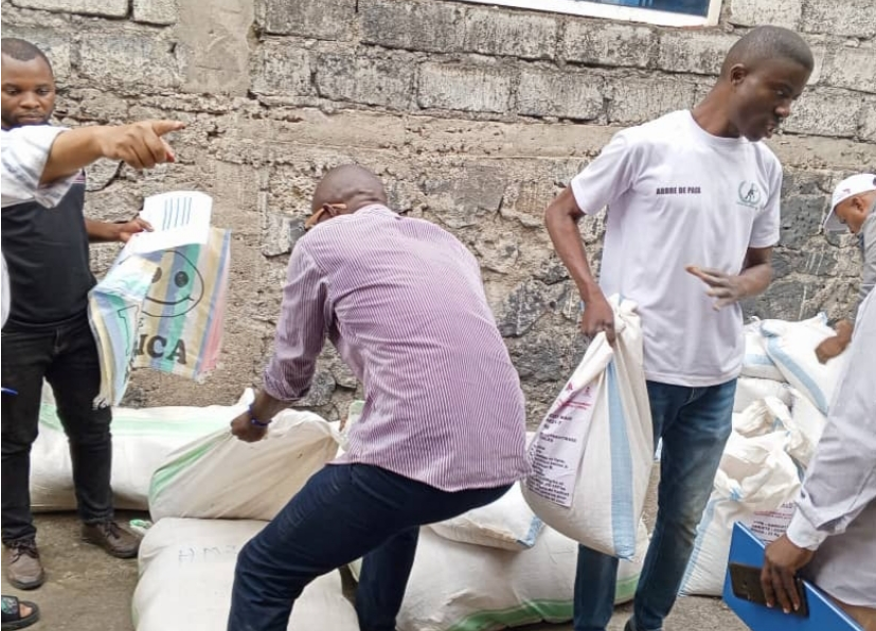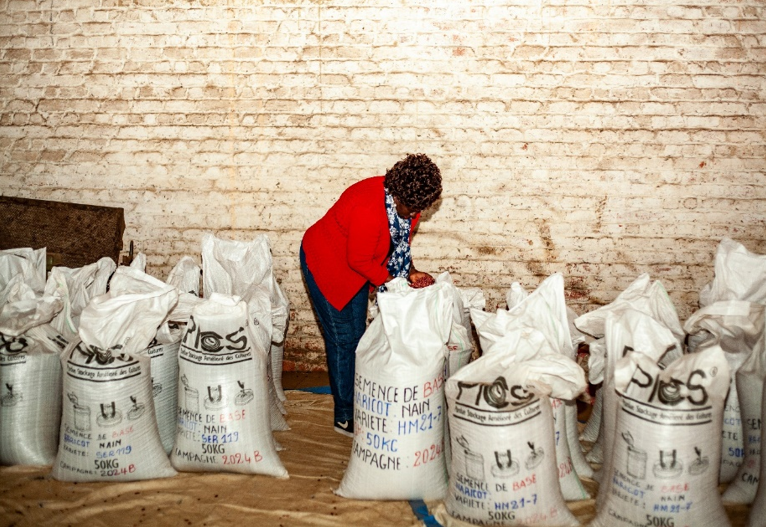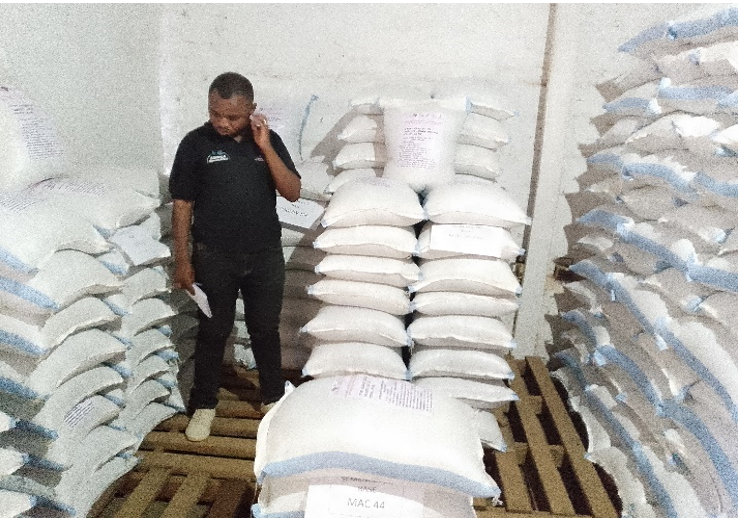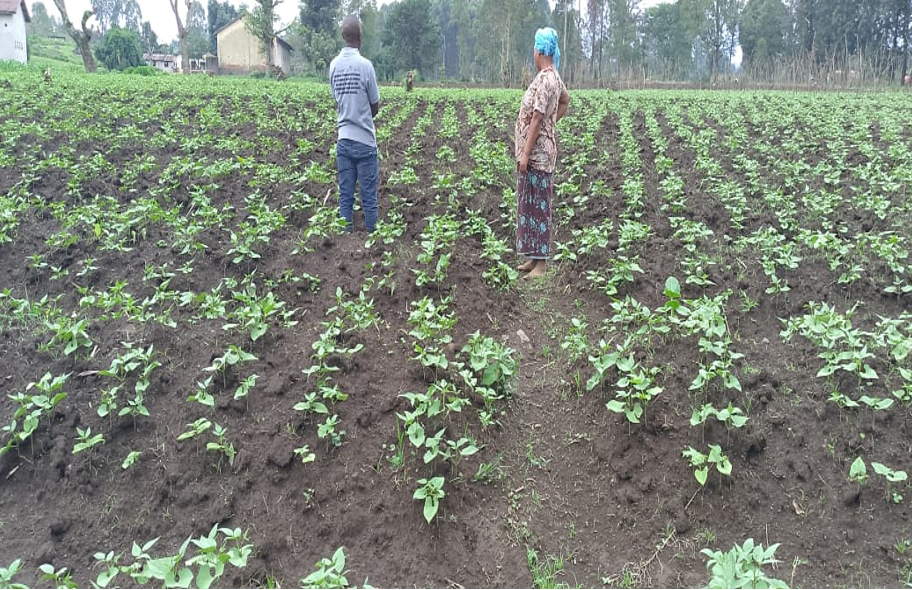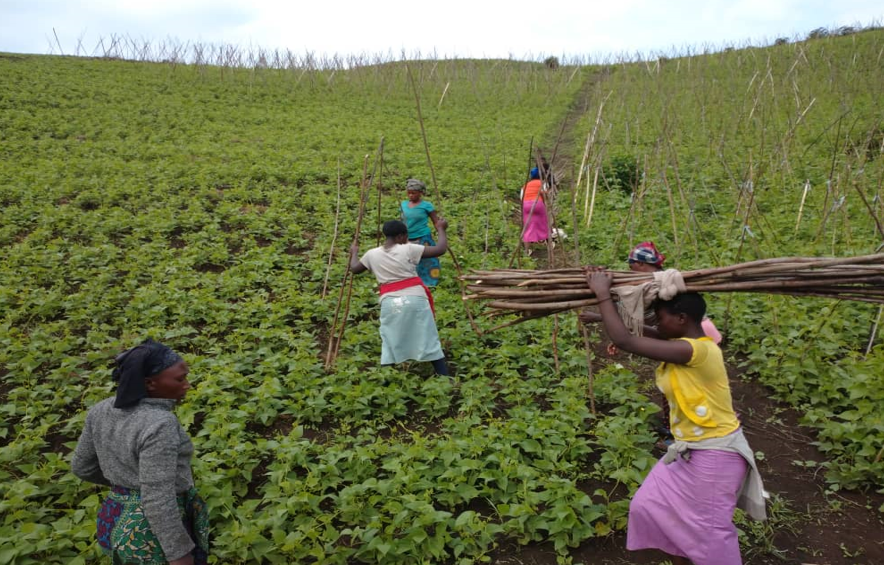By Lydie Mulonda, Hosny Dunia, Napoléon Kajunju, Julie Ntawinja, Lucky Kalisya, Paulin Njingulula, & Bola Amoke Awotide
Local seed multipliers in the Tanganyika, North Kivu, and South Kivu Provinces of the Democratic Republic of Congo (DRC) were all smiles as the Beans for Women Empowerment (B4WE) Project, supported by Global Affairs Canada, delivered nearly six tons of bean foundation seeds in August 2024.
This is part of the initiative’s quest to empowering women through bean farming by promoting the widespread adoption and diffusion of improved bean seed varieties. The distributed seeds include three bush varieties—HM21-7, SER119, and Kabulangeti—and three climbing varieties—G59-1, CODMLV106, and MAC44. These varieties were carefully selected for their adaptability to the targeted provinces and alignment with local consumer preferences.
The distributed seeds are set to cover a total of 75 hectares. In North Kivu, 2,680 kg of bean seeds have been allocated for planting across 36 hectares in the territories of Masisi, Nyiragongo, and Rutshuru. In South Kivu, 2,080 kg of foundation bean seeds have been delivered to partners, covering 26 hectares in Walungu, Kabare, Kalehe, Fizi, Uvira, and Idjwi. Additionally, 1,010 kg of foundation seeds have been sent to Tanganyika, covering 13 hectares in Kalemie and Moba. These seeds have been distributed among B4WE partners across the three provinces: AJECEDEKI, SYDIP, Arbre de Paix, and Cooperative Tunngana in North Kivu; FABIS, AGRIFORCE, CPR, GAP, SARCAF, UGEAFI, and GROUPE MILLIMA in South Kivu; and UFMD, KAMAL TABAC, COPCOPAT, COFERTA, and LiZADEEL in Tanganyika.
These partners have expressed their gratitude to the project for providing access to certified seeds of various bean varieties, which have significantly improved their prospects for a successful harvest and increased income.
The B4WE project aims to enhance women’s access to certified, high-quality improved seeds, leading to higher productivity and increased income. This empowerment fosters self-sufficiency, leadership, and active participation in decision-making at household, community, and national levels, which will not only improve food security but also drive sustainable transformation in local social and economic dynamics.
With technical support from the Alliance of Bioversity International and CIAT through the Pan-Africa Bean Research Alliance (PABRA), these interventions are set to promote resilient and sustainable agricultural production, offering real hope for prosperity and stability in conflict-affected provinces. Currently, farms utilizing these seeds are thriving in the highlands of South and North Kivu, as well as the plains of Tanganyika. The seeds have germinated successfully, agronomic best practices are being implemented, and the prospects for a bountiful harvest have never been stronger.
By significantly boosting productivity, enhancing household income, strengthening food security, and combating malnutrition in the conflict-affected regions of eastern DRC, these seeds play a crucial role in community resilience. In partnership with the National Institute for Agronomic Studies and Research (INERA), the project has successfully produced high-quality, certified seeds of various preferred and highly demanded bean varieties.
The seeds were stored at INERA after harvest and officially transferred to the project following a thorough inspection and verification of the actual quantity produced. Bola and the B4WE team expressed their appreciation to INERA for their efforts and dedication, particularly for successfully coordinating the seed production as planned. To facilitate distribution to all project partners across the targeted provinces, the seeds were repackaged into 25 kg bags. Each bag was clearly labeled with important details, including the variety name, recommended agroecological conditions, best agronomic practices, nutritional benefits, and potential yield per hectare.
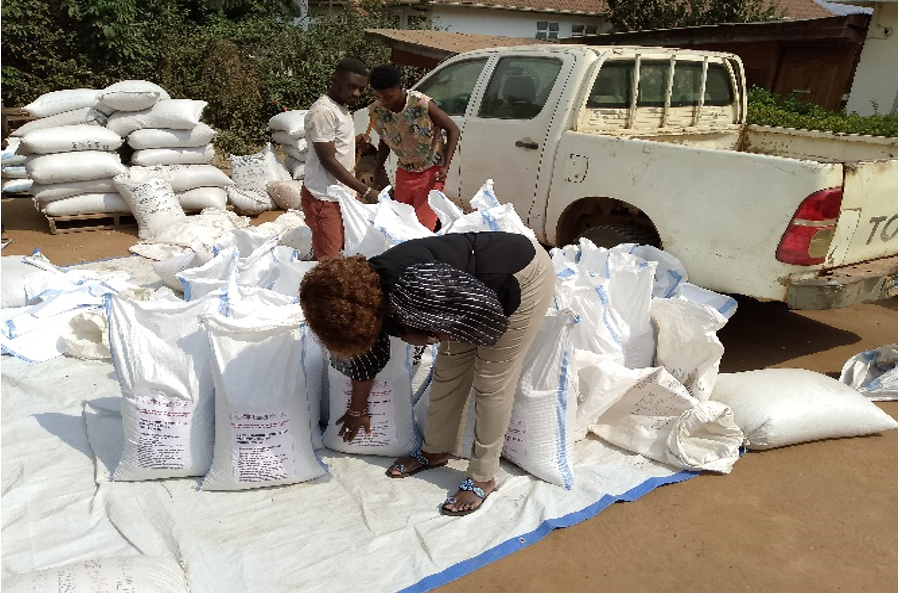
Bola Amoke Awotide (above) and Hosny Dunia (below) from Alliance of Bioversity-CIAT, inspecting the packaging, and storage of the bean seeds before distribution to the seed multipliers
By the end of Season A, the production of these beans seeds is expected to have yielded approximately 60,000 kg of certified seeds from the 75 hectares. To encourage adoption and ultimate wide diffusion, seeds will be distributed in ‘small packs’ to more than 15,000 farming households, and over 5000 school children across the selected territories in the provinces. This intervention, under the B4WE project, is set to have a significant impact on the bean value chain in Tanganyika, North Kivu, and South Kivu provinces.
For more information contact:

